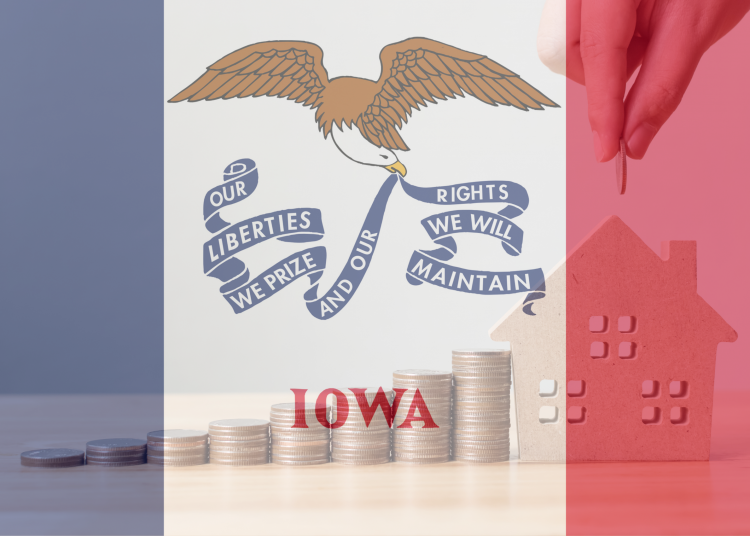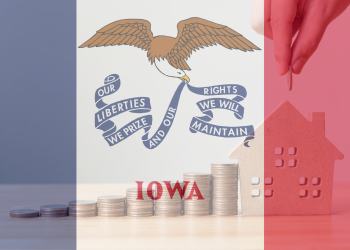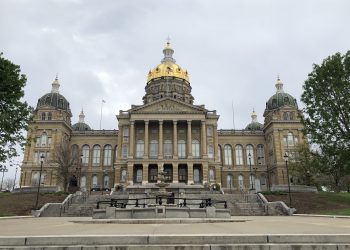Lee Rood’s recent article in The Des Moines Register brought up a growing concern that Iowans share across the state. Taxpayers are growing more frustrated with high property taxes. Recent property tax reforms enacted by the legislature have failed to slow the growth of property taxes. Even eliminating the county mental health property tax levy did not generate much savings as many counties failed to pass that along to taxpayers. In fact, 48 of the 99 counties failed to pass along those savings to taxpayers. Rood reported that many taxpayers in the Des Moines metro area are frustrated because cities passed local option sales tax increases, which promised property tax relief, but taxpayers are not seeing much relief. Further, Rood noted that assessments in 2023 are expected to reach record highs. What should or can be done about property taxes?
First, taxpayers need to understand that the assessor is not the problem. This does not mean that assessors cannot make mistakes, but just because valuations increase by a certain percentage does not mean that your property tax bill needs to increase by that amount. Taxpayers make the mistake of blaming the assessor because they think a 20 percent increase will automatically lead to a 20 percent increase in their bill. This is not the case.
Local government spending is what drives higher property tax bills. County assessors are not setting budgets, but your local taxing authorities, whether that is the county, city, or school district. Many local governments have taken advantage of assessment increases by lowering property tax rates, but still forcing taxpayers to pay more in property taxes. Collecting a windfall from assessments, while telling taxpayers that their rates are down, is dishonest. This leaves many taxpayers wondering if the rates are lower, why is my bill increasing?
Any property tax reform must address local government spending. Without addressing local government spending it is unlikely that taxpayers will see any relief. As an example, the 2019 accountability and transparency property tax reform law established a 2 percent “soft cap” for county and city budgets, and school districts were exempt. This meant that city and county budgets could grow 2 percent, but anything over had to be approved by a supermajority vote after a public hearing. The 2 percent “soft cap” is hardly a restraint upon local government spending.
In her article, Rood quotes a concerned taxpayer in West Des Moines who is wondering what the city is doing with the revenues from the 1 cent sales tax increase. Taxpayers were told that half of the revenues gained would be directed toward property tax relief, but as the resident explained, “I have yet to see any relief in my property taxes.”
It can be debated whether increasing the local sales tax is a good policy, but when increasing an existing tax or even creating a new tax to provide relief for another tax is never a good idea. In this situation, governments tend to benefit more than the taxpayer. As an example, in 1934, Iowa enacted both the sales and income tax in order to provide property tax relief. The result was a gradual increase in all major tax categories.
How can we address local government spending to provide property tax relief? Property taxes in Iowa are complicated, but that should not deter policymakers from enacting a pro-taxpayer reform. Property taxes are the largest source of revenue for local governments. School districts are the leading drivers of property tax bills.
Two main policy ideas can help rein in local government spending. The first is to establish what could be called a property taxpayer bill of rights. This would be similar to other spending limitations such as Colorado’s TABOR (Taxpayer Bill of Rights). A spending limit should be applied to the entire budget. As an example, local governments could have a 1 percent increase, but anything above would need to be approved by voters. This would also apply to school districts as well.
A recent ITR Foundation poll found that 56.1 percent of Iowans support the legislature enacting a spending limitation on how much local governments can tax and spend.
Another reform idea is to follow the example of Utah and Kansas. Both states have a strong Truth-in-Taxation law, which has proven to provide property tax relief and slow the growth of taxes. The heart of Truth-in-Taxation is aggressive transparency that is supported by two main pillars. The first is that it is revenue-based rather than rate based. This focuses on the entire spending of a taxing authority. As assessments increase, tax rates are lowered, which creates a ratchet effect.
Under this system, local governments receive the same amount of revenue each year. As an example, if a city’s budget is $150 million in Fiscal Year 2022, it will remain the same in the next year. Utah’s law allows new growth to be added, while Kansas does not permit any growth. This prevents local governments from taking advantage of assessment windfalls, that is, they cannot collect the extra money and pass the blame onto the assessor.
If a local government wants to increase the budget it triggers an extensive direct notification process. Direct notification requires that the taxing authority send a notice to every taxpayer, which explains how the budget increase will impact their property tax bill. It also provides the date, time, and location for the Truth-in-Taxation budget hearing. The direct notification and budget hearing force local governments to justify why they want to increase spending.
Truth-in-Taxation forces local governments to be honest and makes them more accountable to the taxpayer. The Utah and Kansas laws are the gold standard for property tax reform and the most taxpayer-friendly laws in the nation. Taxpayers in Utah and Kansas are benefitting as a result of Truth-in-Taxation.
For too long a blame game has occurred over who is responsible for high property taxes and the voice of the taxpayer has been ignored. Local governments must understand that the money they are spending belongs to the taxpayer. Governor Kim Reynolds and the legislature are following conservative budgeting and had to make some tough decisions regarding spending. It is hard to say “no,” but local governments need to consider how they are spending taxpayer dollars. Just as the legislature is being prudent with taxpayer dollars, local officials must learn to practice prudent budgeting.
Everyone is focusing on high assessments, but it is time for taxpayers and policymakers to focus more on local government spending. If Iowans want property tax relief and to slow the rapid increase in property taxation, then spending must be addressed.
















